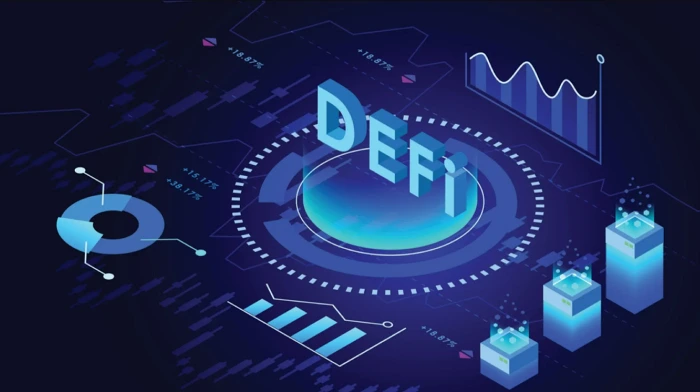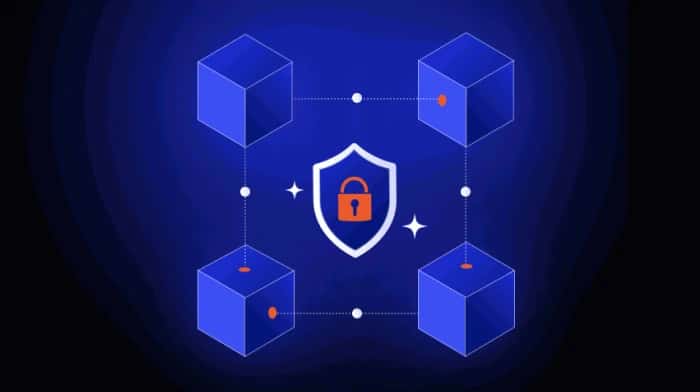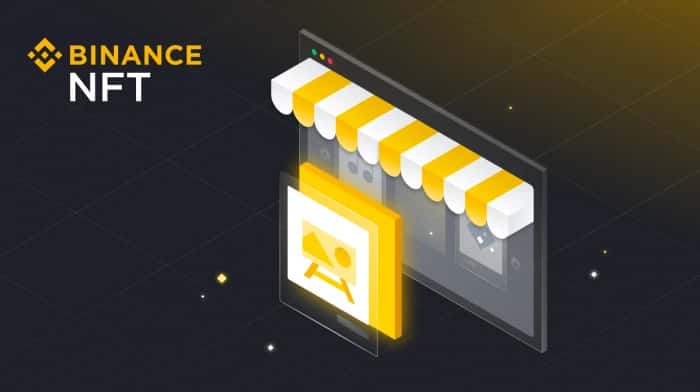
Introduction
The Emergence of Blockchain Technology
The emergence of blockchain technology is having an impact on the world of finance. One area where this is particularly evident is in the rise of decentralized finance. A approach that's set to transform the future of financial systems.
For a time banks and other big financial institutions have been in charge making it hard for many people to get the help they need. These old systems have a lot of flaws:
- •They're slow
- •Only available in places
- •Often need someone in the middle to make things happen
This has created an opportunity for something to come along and shake things up; a way of doing finance that's not controlled by any one group. Instead is open and available to everyone.
Traditional Finance Limitations
The way we've traditionally handled money has some flaws that prevent lots of people around the world from getting access to financial services. For one having middlemen in the process slows everything down makes it more expensive and takes longer to get things done. These problems are made worse by rules and the fact that some areas are really hard to reach.
All of this means that a huge number of people are missing out. To make matters worse the old way of doing things isn't very transparent which has led to:
- •Hidden fees
- •Unfair loan practices
- •Not enough people being held accountable
The DeFi Revolution
The rise of DeFi marks a change in how we think about control and transactions. It's all about moving from a system and towards something that's:
- •Transparent
- •Runs itself
- •Secure
All thanks to blockchain technology. This new way of doing things cuts out the middlemen and makes sure everything is decentralized, automated and safe which is made possible by some advanced work on the blockchain side of things.
Core Principles of Decentralized Finance
At the heart of decentralized finance lies a set of core principles. These principles are the foundation of a movement that's changing the way we think about money and financial systems.
Decentralization
DeFi is built on an idea; no single entity should control everything. That's where decentralization comes in. Traditional systems on the hand rely on authorities to keep things running. DeFi takes an approach. It uses distributed networks, like Ethereum, where a network of nodes works together to validate transactions.
This way there's:
- •No one point of failure
- •System is much harder to shut down or manipulate
- •Without a controlling entity the entire process is more resilient and resistant to censorship
Interoperability
When different applications and protocols can work together smoothly it creates a foundation for the DeFi ecosystem. This kind of cooperation allows various services to build on each other's strengths making it possible to offer comprehensive financial solutions.
It's a bit like pieces of a puzzle fitting together forming a detailed picture. In this case the picture is a landscape where users have access to a range of services that work well together.
Transparency
When everything is out in the open it's easier to believe in the system. That's why transparency is so important. It means all transactions, agreements and data are recorded for anyone to see on blockchains.
This makes it possible for anyone to auditing them which in turn helps build trust among the people involved. Unlike systems where things can be a bit murky this openness helps get rid of the uncertainty and secrecy that can undermine confidence.
Financial Inclusion
Making financial services available to everyone no matter where they're from is an idea. It means people from all walks of life can take part in activities even if they don't have access to banks. This opens up a world of possibilities for individuals who were previously left out because of where they live.
Key Components of DeFi
The backbone of finance or DeFi relies on key elements. When you break it down the DeFi ecosystem is made up of an parts. Let's take a look. At its core DeFi is about creating an open and accessible financial system.
DeFi Protocols
The foundation of the ecosystem is made up of DeFi protocols which are basically the backbone that oversees a range of financial activities through automated contracts. This includes things like:
- •Decentralized exchanges where people can buy and sell
- •Platforms for lending and borrowing
- •Ways for investors to earn returns on their funds
The emergence of protocols such as Uniswap and SushiSwap has been a game changer for trading. They've made it possible for people to swap assets without needing some middleman to oversee the process. This lack of control is a part of their appeal.
On another front protocols like Aave and Compound are making waves in the lending and borrowing space. Essentially they let users do a couple of things:
- •They can lend out their assets to earn interest
- •They can borrow money by putting up some collateral as a guarantee
DeFi Derivatives
DeFi derivatives bring a level of complexity to the table offering tools for managing risk and speculating on market movements. This is largely thanks to assets which essentially let people bet on the performance of financial instruments. Think stocks, commodities and indices. Without actually having to own them.
These new financial tools use contracts to keep an eye on what the underlying assets are worth and mimic how their prices move. This opens up ways for people to:
- •Mix up their investments
- •Come up with strategies
- •All within a system that isn't controlled by a single entity
DeFi Wallets
DeFi wallets play a role in letting people use protocols and apps. Since most of these wallets aren't controlled by an authority users get to keep control over their private keys and money.
This makes it easier for them to:
- •Manage their assets
- •Add liquidity
- •Stake tokens
- •Make transactions
From an interface that's straightforward to use.
Decentralized Infrastructure
The foundation of the DeFi ecosystem is built on blockchain technology. What makes this work is that blockchain is set up in a way that can't be altered and everything is out in the open. This lets people make transactions without worrying about their safety or having to rely on someone to make sure things get done.
Smart contracts play a role too. They automatically carry out agreements so there's no need for a middleman to get involved.
Blockchain Technology as the Foundation
Blockchain technology forms the backbone of DeFi allowing it to carry out its functions. DeFi platforms cut out the middlemen and make things more transparent, secure and efficient by using a system that isn't controlled by an entity. This new approach does away with the need for go betweens making the whole process more straightforward.
Immutable Ledgers
Immutable ledgers are a thing of beauty when it comes to transparency. They're a means to an end a way to ensure that all transactions no matter how big or small are recorded in a way that's completely tamper proof.
The idea is pretty straightforward; once something's been written to the ledger it's there forever with no possibility of alteration or deletion. That sounds like a concept. It has far reaching implications:
- •Everyone involved can see exactly what's going on
- •No behind the scenes tweaking of the numbers
- •Fosters trust because when everything's out in the open there's no room for dealings or hidden agendas
The real beauty of blockchain lies in its ability to create a record of transactions. This is done by grouping transactions into blocks which are then linked up in a sequence. Each block is sealed with cryptography making it virtually impossible to alter the record once it's been created.
Smart Contract Automation
Smart contracts are paving the way for automation in a way. This new technology is making it possible for businesses to streamline their operations eliminating the need for intermediaries and manual processing. With contracts tasks can be carried out automatically freeing up time and resources for important things.
Smart contracts are basically agreements that carry out their terms thanks to code that's built in. When certain conditions are met the code kicks in. Enforces the terms. No need for a middleman.
This makes it possible to:
- •Lent
- •Borrow
- •Trade
- •Even farm yields without all the hassle
By automating the process mistakes and tampering become a lot less likely which in turn makes everything run more smoothly.
Interoperability Solutions
Finding ways for systems to work together seamlessly is crucial. This is where interoperability solutions come in. They help make sure that various components can communicate and exchange information without a hitch. On top of that scalability is also vital as it allows these systems to grow and adapt to changing needs without compromising performance.
For blockchain technology to really take off different networks need to be able to:
- •Talk to each other and share information
- •Let users tap into a range of services
- •Handle a lot of transactions at once without slowing down
As DeFi apps become more popular having a system that can scale and accommodate different blockchain networks is crucial for growth.
Protocol Innovations
Pioneer protocols are transforming the world of decentralized finance or DeFi for short.
Top Protocol Innovations
Uniswap was a trailblazer in the exchange space introducing a way of trading tokens without relying on traditional order books. This was made possible by automated market maker models where people who have assets to spare can lock them up in contracts. By doing they help facilitate trading. The system adjusts prices automatically which in turn makes it easier for people to buy and sell tokens and adds more liquidity to the market.
The introduction of interest rates determined by how much's being lent and borrowed turned the digital asset lending and borrowing world on its head. This approach makes sure money is being used where it's needed. It's now a cornerstone of lending in the finance space.
MakerDAO was a game changer when it came to stablecoins introducing DAI, a stablecoin that's pegged to the US dollar but operates in a decentralized way. What really sets DAI apart though is the way it's governed. Through a decentralized organization or DAO that lets users have a say in the decisions that affect the stablecoin's stability.
New Breakthroughs in Protocol Development
Yield farming and liquidity mining are practices that motivate people to add liquidity to DeFi platforms. They do this by offering rewards in the form of tokens. When users put their assets into these liquidity pools they start:
- •Earning interest on what they've deposited
- •Getting involved in how the protocol's governed
- •Helping it grow
The concept of flash loans and composability has opened up possibilities allowing people to borrow assets without putting up any collateral long as they pay back the loan within the same transaction block. This game changer enables some financial moves like taking advantage of price differences between markets. A process known as arbitrage. And swapping out collateral.
When different parts work together it's amazing what you can create. In the world of DeFi this means that various protocols can interact smoothly opening up a lot of possibilities for developing efficient plans.
Blockchain Development Companies Role
Companies that specialize in blockchain development are the ones pushing boundaries in the DeFi space. They bring a level of know how that's crucial for creating, launching and refining the systems that make this ecosystem tick.
Technical Expertise
These companies bring a lot of specialist know how to the table helping to create the rules that make various DeFi services work. They work on everything from:
- •Exchanges that operate without a hub
- •Platforms that let people lend and borrow money
- •Systems that reward users with interest incentives
The key is to make sure these systems are:
- •Secure so people's money is safe
- •Efficient so they can handle a lot of transactions
- •Scalable so they can grow as more people use them
- •Easy to use even for people who aren't tech experts
User Interface Development
Making an interface that people actually want to use is a part of what we're trying to do. It's all about creating something that's easy to navigate for those who aren't especially tech savvy.
DeFi adoption hinges on how user friendly it is. To make these platforms more accessible development companies are creating interfaces that are easy to navigate regardless of whether you have a background. This simpler approach helps break down barriers and brings in a group of people which is essential for building a thriving DeFi ecosystem.
Security and Auditing
The world of finance is a high stakes arena where even the slightest security breach can have financial consequences. That's because smart contracts, the backbone of DeFi can be vulnerable to exploitation if they're not thoroughly vetted.
To mitigate these risks developers typically conduct security audits. This rigorous process helps identify weak points and address them ultimately:
- •Bolstering the platform's defenses
- •Safeguarding its users
Strategic Partnerships and Collaboration
Collaborations are changing the face of finance. The future of DeFi is taking shape. It's being molded by the combined efforts of players in the space.
Cross Protocol Integrations
When different projects work together they can create connections that let them interact and share information smoothly. This kind of setup makes for a connected financial system where different parts can work well together. For example lending platforms might team up with exchanges making it easier for people to get the liquidity they need.
Scalability and Interoperability Solutions
Companies are crucial in coming up with ways to deal with the issue of DeFi platforms being able to handle a number of users. To solve this problem they're working on:
- •Layer 2 scaling solutions which help them grow and work better
- •Chain interoperability frameworks so that DeFi can handle more users and a wider range of assets
Industry Innovation
When people from parts of an ecosystem work something special happens. Ideas and expertise get. That leads to innovation that can benefit the industry. By learning from each other's successes and setbacks projects can move forward in a way that helps the entire DeFi space grow and change.
Regulatory Challenges
The DeFi scene has. That's created a situation for regulators. It's now a factor in how DeFi grows and gets adopted.
Regulatory Uncertainty
Regulations can be a real grey area especially when it comes to figuring out what's allowed and what's not. There are often a lot of questions and uncertainties surrounding the rules that govern industries and activities. This lack of clarity can make it tough for people to know how to operate within the law.
The fact that DeFi operates across borders with no authority throws a wrench into regulators attempts to figure out who's in charge and how to make rules that everyone follows. Without guidance from regulators people involved in DeFi are left wondering if what they're doing is even legal and that uncertainty puts them at risk of getting in trouble with the law.
Regulatory Conflicts
The way DeFi works without an authority goes against the way regulations are enforced. Normally regulators count on intermediaries to keep an eye on things. DeFi's use of pseudonyms for transactions and automated smart contracts which are key to its style can cause problems with existing laws against:
- •Money laundering
- •Rules that require businesses to verify their customers identities
Consumer Protection
The nature of decentralized platforms creates challenges when it comes to enforcing measures that protect consumers and addressing the risks that investors face. Without the presence of intermediaries users are especially vulnerable to:
- •Scams
- •Hacks
- •Other security exploits
Which can result in losses and often little can be done to recover them.
Impact on Innovation and Development
Rules that are too strict could really hold back the creativity that's driving DeFi forward and scare off developers who might otherwise be interested in exploring its potential. If things get too tough we might see these ecosystems start to break with projects either trying to fly under the radar or picking up and moving to places with lenient rules.
Regulatory Fragmentation
The fact that DeFi is a phenomenon makes it even tougher for regulators to keep up since different countries are taking approaches to blockchain and digital assets. This lack of consistency is causing a lot of confusion for users making it harder for people to participate across borders.
Growth and Adoption Impact
Big institutions tend to play it when it comes to following the rules and staying within the law. This means they might give DeFi a berth mostly because the regulatory landscape is still pretty unclear. As a result DeFi misses out on the kind of capital and expertise that these institutions could bring to the table.
Some people might be put off from getting into DeFi because of concerns. This is especially true for those who are cautious with their money or aren't really sure how blockchain technology works. They might just decide it's not worth the hassle.
Future Outlook
The combination of blockchain development and DeFi is changing the way we think about finance. As rules and technology improve more people are likely to start using these systems.
For finance or DeFi to really take off a few things need to happen:
- •Advancements in blockchain technology - It needs to keep evolving to support the growing demands of this field
- •Clear regulations - So businesses and individuals can operate with confidence
- •Making DeFi more accessible - Creating user interfaces that are intuitive and easy to use even for people who are new to this space
The growth of DeFi protocols, derivatives and wallets along with advancements in the underlying tech shows just how crucial blockchain development is in building systems that are:
- •Fair
- •Efficient
- •Open to everyone
As different companies protocols and regulatory bodies work together more and more the groundwork for a decentralized system gets stronger.
Ready to Build Your DeFi Solution?
Transform your financial vision with our expert blockchain development services. From DeFi protocols to smart contracts, we help you build secure, scalable decentralized finance platforms.


